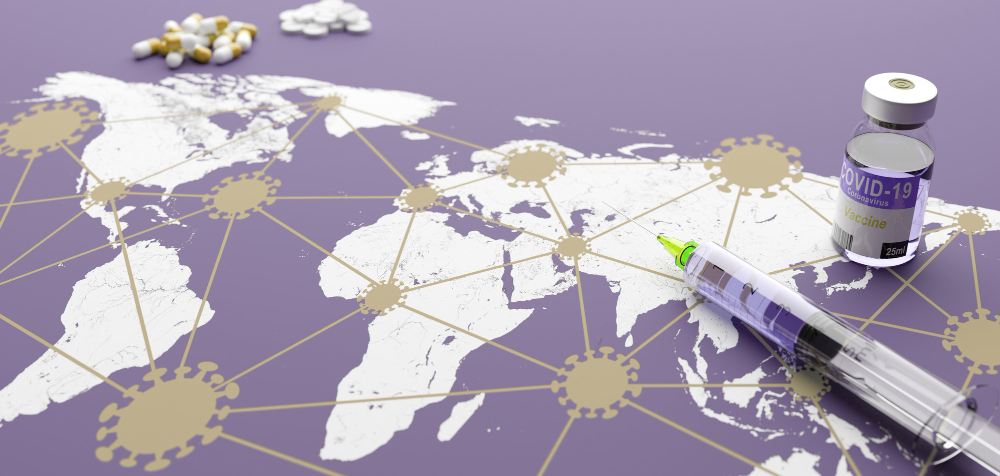10-June-25
 Reading Time: 3 minutes
Reading Time: 3 minutesThe COVID-19 pandemic didn’t merely alter our way of life—it fundamentally transformed our approach to research. Within a matter of months, the worldwide academic community experienced a dramatic shift in priorities, funding trends, collaborative frameworks, and even the concept of what constitutes “essential science.”
From neglected pathology journals to live-streamed global research conferences, the scientific landscape accelerated, adapted, and evolved. Disciplines such as virology, public health, remote diagnostics, data modeling, and global health equity experienced a surge in interest—and financial support. At the same time, traditional barriers crumbled as interdisciplinary collaborations flourished across nations and fields.
Welcome to the research ecosystem of the post-pandemic era, where flexibility, accessibility, and tangible impact are paramount. At Research Desk, we have been at the forefront of this evolution—assisting researchers in reshaping their work for relevance, clarity, and worldwide engagement.
🧬 1. Public Health Took Center Stage (At Last)
For many years, public health was neglected and undervalued. This shifted dramatically when the world came to understand how interconnected we truly are. The COVID-19 pandemic propelled epidemiology, vaccine innovation, healthcare infrastructures, and behavioral science into the spotlight—and into the financial plans of governments.
🧪 2. Virology & Vaccine Research Gained Prominence
Areas that were previously viewed as “niche” emerged as the focal point of global cooperation. Researchers from various continents collaborated on studies regarding SARS-CoV-2 transmission, mutations, and the effectiveness of vaccines, frequently releasing their findings in open-access journals within a matter of weeks.
Preprints, which were once met with skepticism, turned into essential resources. It became clear that the priority was no longer to publish in prestigious journals, but rather to disseminate findings quickly enough to protect lives.
💻 3. Remote Labs and Virtual Research Became the Norm
While wet labs may still rely on pipettes, the pandemic catalyzed a worldwide shift towards virtual research environments, simulation-based modeling, and platforms for remote collaboration. Clinical trials also began incorporating telemedicine and remote monitoring, enhancing both accessibility and scalability.
🤝 4. Global Collaboration Took Precedence Over Competition
The COVID-19 pandemic helped dispel the notion that science must be confined to specific territories. Collaborations spanning disciplines, time zones, and languages became the norm. Institutions that were once rivals began to co-publish, co-fund, and co-design research protocols.
At Research Desk, we observed a significant increase in co-authored manuscripts, shared research data, and requests for guidance on aligning writing among authors from various institutions and continents.
Not everything could ride the COVID wave. Several research areas, including:
…experienced a temporary funding freeze or downshift in attention. But that’s now beginning to rebound—with a new emphasis on interdisciplinary relevance.
As research priorities evolve, your writing, structure, and submission strategy must evolve too. Here’s how Research Desk helps researchers thrive in the post-pandemic publishing world:
✅ Strategic Reframing:
We help researchers position their work within global priorities—whether that’s connecting climate science to public health, or embedding AI into medical diagnostics.
✅ Fast-Track Editorial Support:
Pandemic-era publishing expects speed and clarity. Our editors optimize your manuscript for rapid peer review—ensuring abstracts, keywords, and formatting hit journal expectations immediately.
✅ Multiauthor Alignment:
Got five co-authors from four countries and three time zones? No problem. We specialize in managing collaborative manuscripts—resolving tone, structure, and formatting differences so your paper sounds cohesive, not chaotic.
✅ Grant & Proposal Writing:
Need to tap into new funding streams tied to global health or pandemic resilience? Our team helps you craft compelling proposals and concept notes that highlight relevance and impact.
During lockdown, “I’m working from home” became code for “I’m writing a paper in pajamas.” At Research Desk, we don’t judge your attire—but we’ll make sure your abstract wears a tie. 😄
The COVID-19 pandemic compelled the academic community to confront difficult questions: What is truly important? Who are we conducting research for? And how can we respond more swiftly when the next crisis arises?
The responses are still emerging—but one thing is evident: agility, communication, and clarity have become the new benchmarks of academic achievement.
At Research Desk, we take pride in assisting researchers as they navigate this transformed landscape. Whether your focus is on public health, AI in diagnostics, climate resilience, or post-pandemic economics—we are here to ensure your research reaches a global audience.
Because when priorities shift, your voice must elevate to meet the moment.